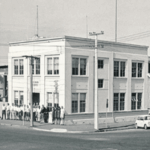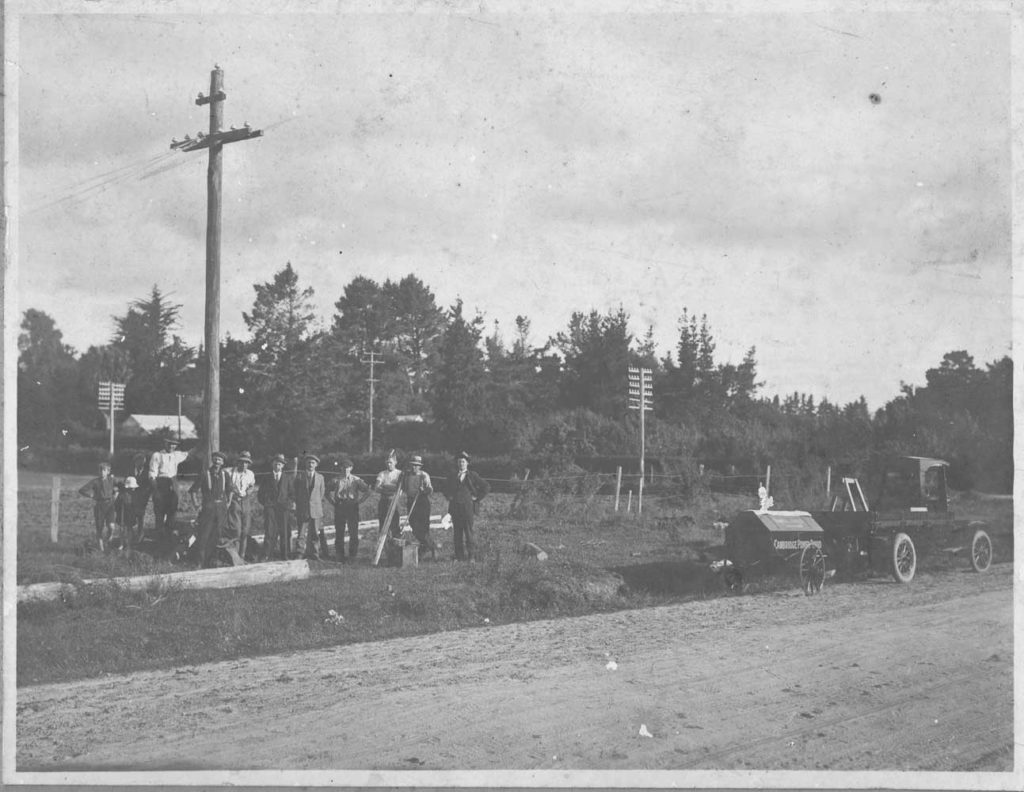Cambridge Town
Learn about the history of town and its districts, schools and roads over the years.
View moreCambridge Power Building

The original owner of this land was successful local businesswoman Maria Murphy. Mrs Murphy and her husband Patrick were colourful personalities, involved in various Cambridge scandals from the 1880s to the early 1900s, often reported in local paper “Waikato Independent”. When Mrs Murphy died in 1913, she left the land to her daughter Minnie. Minnie had moved to Newtown in Auckland many years before, but could not be located to claim her inheritance. The land was eventually purchased by the Cambridge Electric Power Board in 1922. This Art Deco building, with its bold concrete design and meander-pattern frieze, was built in 1925.

Cambridge Power Board on the corner of Alpha and Empire Streets, probably 1960s. REG BUCKINGHAM CM2958/8/90
It was the main office for the Cambridge Electric Power Board, which had been set up in 1920 when electricity first became available from the old Horahora Power Station. Suddenly, homes and businesses in the Cambridge area were stepping into a new age of light and power.
The building itself was designed by architects Edgecombe & White and built by local firm Speight Pearce Nicoll & Davys, with joinery crafted by Jack Savory. It cost a little over £3,000 at the time – a big investment back then. Newspapers described it as both solid and practical, but also “pleasing to the eye.” Inside, rimu doors and rounded corners gave it a touch of style, while steel-framed windows with tiled sills made it modern for its day.
Behind the main offices, the original concrete substation was completed in 1921. That part of the building is now a restaurant.
Leamington was the very first place in the Waikato to enjoy this new power. On 29 April 1921, the Leamington Hall was lit up with nine bright electric lamps – a spectacular moment for locals. A year later, Mayor Sam Lewis’s young son Peter had the honour of switching on Cambridge’s very first electric street lights.
When the Karāpiro Hydro Dam opened in 1947, Cambridge joined the National Grid. By 1992 the Power Board building had been given a new lease of life, transformed into a hub for local businesses. The old Cambridge Power Board itself eventually merged with Te Awamutu’s to become Waipā Power.

